In conversation: folk
Talking traditions old and new with artist, folklorist and dancer Lucy Wright
Win my writing essentials • Our next Book Club is Lucy Jones with Matrescence on August 27th - here’s our reading guide with an exclusive excerpt • Scroll down to see all our forthcoming live events •
Folk is having a moment, but a tentative one. It speaks to an era when so many of us are trying to root oursevles back into the landscape around us, to find ways to practice connection and attention, to establish new and more meaningful communities. Many of us are returning to older ways of marking the beats of the year, to festivals and rituals that were once thought to be dying out. In Wales, the Mari Lwyd (a skeletal horse-bride who visits houses at midwinter) has become so popular that successive events have shut down due to overwhelmingly high numbers; in Scotland and the north of England, ancient fire festivals are drawing ever-growing crowds, and new ones are starting up to meet the demand. We are reaching towards something that knits us back into the fabric of life, but on a simpler level, we’re seeking joy and fun outside of the noisy commercialism of the shopping mall or nightclub.
But we return to these practices with a new awareness of their implications, and even more so at a time when racist rioting has reignited the fears of people of colour (Poorna Bell wrote brilliantly on this last week). Who is welcome at traditional events, and who is excluded? How do we ensure that ‘folk’ is not just byword for whiteness, or an expression of nationalism? What do we keep of the old traditions, and what do we desperately need to change?
Lucy Wright is an excellent person to ask. A visual artist with an academic background, and Lucy’s work finds new ways to think about how we practice folk in these current times. “I’ve ditched the academic side but kept the art,” she says. “There’s still a fairly strong research element to what I do—and I think it’s really crucial to combat the mountain of misinformation out there about the folk arts—but ultimately I feel like art is the best context to do what I want to do.” Her work often explores class, queerness, disability, and new points of access into ancient practices.
As I noted earlier this year in my post about being ‘hedge’, Lucy is keen to open up ways to take part in English folk dance. “I have this term, ‘hedge morris dancing’ which I use to refer to morris that happens outside of an established team or tradition,’ she says. “It was a thing of necessity really, when I wanted to keep up with my morris-dance practice but couldn’t find a suitable team in my my new home area—and quite a few people got in touch to say they also wanted to be hedge morris dancers, so I started sharing ideas and resources to help people get started. It turns out that there’s a whole bunch of people—I call them latent morris dancers!—who would love to be part of this stuff, but feel excluded, perhaps on the grounds of gender, race, class or disability, or just not being close to a group of likeminded people.”
I love this idea of latency - all the people who would love to play a bigger part in their local or national celebrations, but can’t find a way in. Alone, finding their own way to make it work, a whole new cohort were able to take part. “More than 100 of us went out, mostly solo, to hedge morris dance the sun down, and the videos and photos that people shared on social media honestly warmed my cockles for the whole of the winter. There were the most incredible, ingenious performances, from very informal shape-throwing in the kitchen with a couple of tea towels, to lavishly stage-managed performances in wild hand-made costumes. I can’t wait to do it again this year!”
Rather than being inherently white supremacist, Lucy sees folk as a place where reflection and change can take place. She’s had enquiries from people in the US, Canada and Australia, wanting to explore their own roots in a more critical way. “I feel as if many of them are experiencing their own re-enchantment with ideas from and around folklore and tradition,” she says, “often as part of a wider grappling with our respective countries’ roles in colonialism and imperialism. Like, is there a way that white people can appreciate and learn from indigenous knowledge without appropriating it, and celebrate the places we come from while also acknowledging our implicated roles in systems of oppression? Can we find a new way forward? There are some really hard questions, but I feel like folk is providing a really rich, really fertile ground for some of these discussions.”
If you’d like to read more, the full interview transcript is at the bottom of the page.You can follow Lucy on her excellent Instagram. Her latest installation, Future Folk Archetypes, opens at Manchester’s Portico Library on Thursday 5th September.
Lucy Wright interview: full transcript
Katherine: Thanks so much for agreeing to talk to me Lucy. Can I start by asking you to describe what you do? I could make an attempt at it, but I’m not sure I’d get it right!
Lucy Wright: Haha, this is a deceptively simple one! I’ll do my best. So these days I would say that I am a visual artist—but I’ve also been an academic folklorist and the lead singer in a folk band (as well as a bunch of other employments I’ve had to do to pay the rent and keep the lights on at home!).
The thing that has cohered all of my chosen roles is a focus on representation and inclusion in the folk arts. I grew up on the fringes of the English / Irish folk scene—my dad was a morris dancer before I was born, and traditional music was amongst the first music I can remember hearing at home. But as I got older, I started to become aware of what I’d now describe as an ‘opportunities gap’ for anyone who wasn’t a white man. It seemed as if so many of the more spectacular performances and fun seasonal customs were male-centred and male-led. At the same time, I was confused why so much of folk seemed to be about looking back in time—slightly nostalgic for an era just out of reach, if it even existed at all.
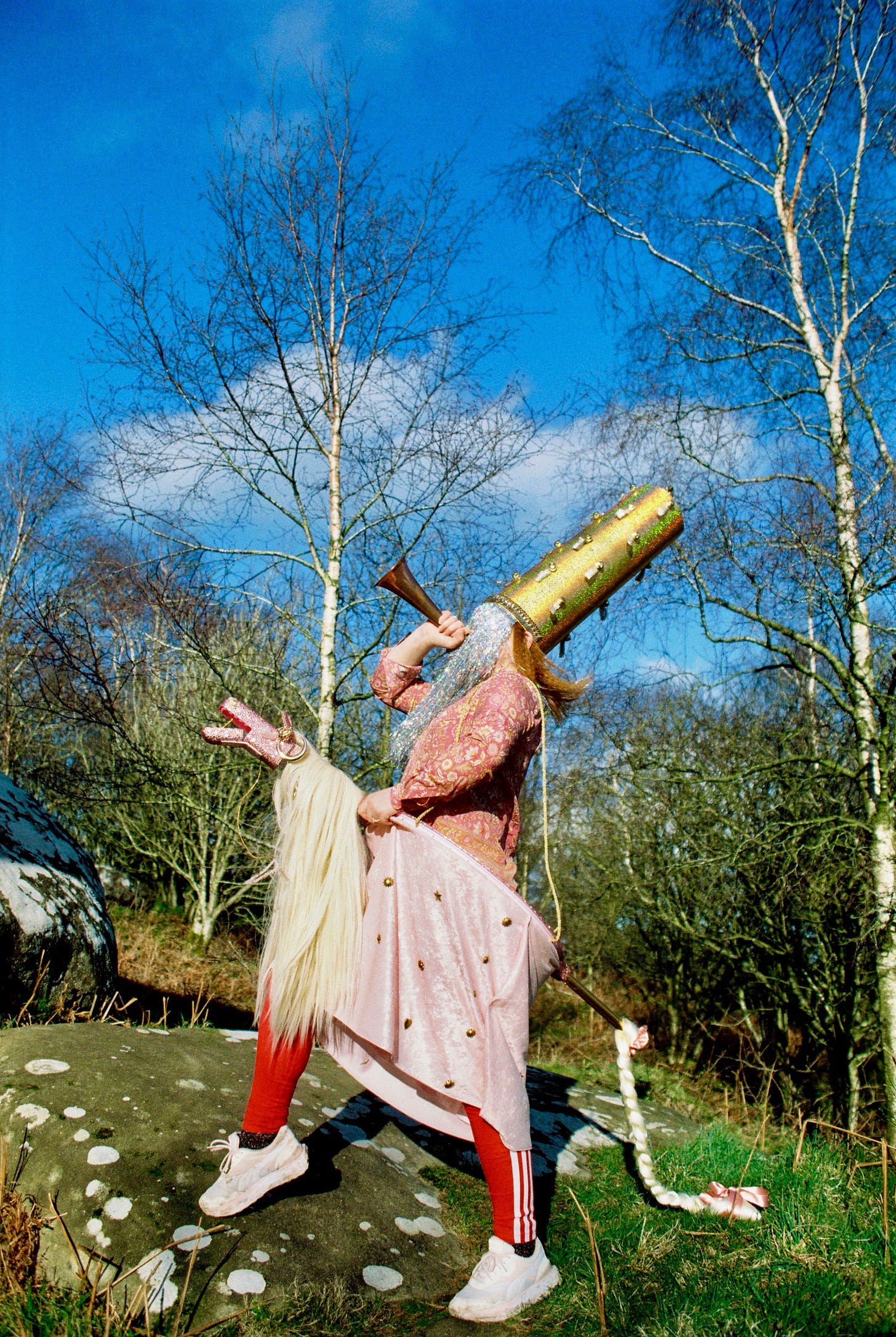
Can you tell me a bit about how you came to study folklore?
I ended up doing a PhD to explore this stuff further, and found myself falling down an enormous, brilliant rabbit hole, looking at the practices and subcultures that didn’t call themselves ‘folk’, but which bore all the hallmarks of the folk I’d grown up with—community-owned, rooted in places and families, gleefully independent and sometimes subversive.
And I found that making art together was a really great way to learn more about these practices—many of which had making at their heart already (making things, making costumes, making meaning, making community etc)—as well as ensuring that everybody felt included in their own representation. I’d always wanted to be an artist, but my working-class parents were very against me doing it when I left school, so this felt like a somewhat roundabout way of getting back to what I really loved.
A decade on and I’ve ditched the academic side but kept the art. There’s still a fairly strong research element to what I do—and I think it’s really crucial to combat the mountain of misinformation out there about the folk arts—but ultimately I feel like art is the best context to do what I want to do.
Tell me about your practice
I make sculptures and performances and have exhibitions and write stuff—all with the aim of making people feel that this stuff belongs to them, whoever they are and wherever they are based, and to challenge some of the limiting stereotypes about what folk is. For me it’s the culture that we make, do and think up for ourselves, and it’s a potentially really important and radical force in society.
There are so many different ways to investigate an idea now - I love how much that’s changed over my lifetime. I feel like folk culture is having a resurgence in the UK too; we’re getting interested in events that used to feel (to me) stale and embarrassing. Is something shifting?
Oh totally! The cynical part of me would say that this kind of resurgence happens every 10 years or so, but it’s brilliant to be part of this new wave of artists, writers, thinkers and musicians who are engaging with and reinterpreting folk for the 21st century. I’d say that its current popularity is thanks to a confluence of factors. The pandemic and ever-hastening climate chaos have prompted lots of us to rethink our relationships to place—making us more conscious of taking care of the land we live on—while 15 years of Tory government have left us desperate for a kinder, more connected society.
Many of us are looking for opportunities to come together with others, to make sense of time and the wild uncertainties of the world out there, and perhaps even to experience ‘enchantment’ in the places where we live! Lots of us don’t feel totally comfortable with formalised religion, so we’ve lost access to many of the rites of passage that were standard for our more recent ancestors…but there’s real comfort in having these anchor-points in the calendar where we can feel connected to a sense of deeper time, to reflect on where we’ve come from, and where we might like to go next. Folk customs—both established and invented—seem to offer that possibility, while also inviting a real sense of ownership and creativity.
How does this new wave differ from what we might think of as traditional folk culture?
What’s different about this current movement, I think, is its emphasis on inclusion. Previously folk and its spaces might have felt like the domain of a certain group of people only. I’ve already said that a lot of stuff was historically male-centred, but it was also predominantly white, straight, middle-class and able-bodied. That stuff is slow to shift and there’s still work to do, but I do feel like women and marginalised people are leading the way right now—at least in terms of producing the most interesting work. We’re no longer accepting the idea that ‘tradition’ means that something should never change, or that only some forms of art and creativity have value.
For decades we were told that our job as inheritors of the folk canon was to take very good care of it and pass it on, exactly as it was when we found it. But the problem with preservation as an imperative is that—if applied unquestioningly—we also risk perpetuating the same old inequities and exclusions that were commonplace when the materials were collected, in this case the late 19th/early 20th centuries. So much has (rightly) changed since then, and it’s so important that our understanding of folk changes accordingly.
What I think is happening is a reassessment of what folk means today and a questioning of the legacy we actually want to pass on to those who come after us—hopefully moving us towards one that is fairer and more inclusive / representative. I wrote a manifesto about some of this stuff back in 2021 and I’m really happy to see that some of the ideas in it have since become mainstream.
So what folk events do you like taking part in?
I have a huge soft spot for a good old-fashioned pub session—the kind where everyone is welcome and people of all ages come together to bash out some really good tunes and songs; maybe share a dance or a story and basically just enjoy the craic. It mostly doesn’t matter what repertoire you’re drawing from. It’s really about being in community and claiming space and sharing in entertainments you create for yourself, which I think is so good for the soul. People sometimes think that ‘folk’ is an aesthetic or genre, but for me it’s much more about defying the dominant cultural messaging that only professionals should be allowed to do creative stuff, and the rest of us had better stick to consuming.
In terms of more seasonal, ceremonial-type stuff, there are tons of really interesting, locally specific customs going on all over the country. However, none of them feel straightforwardly my own—I’m a visitor looking in—not to mention the fact that as a woman, I’d rarely be allowed to do any of the really fun stuff anyway. So for the past year I’ve been working on a project where I insert my own female body into traditional practices that currently would exclude me. Some of my interpretations are a little pointed, but they’re not intended to be harshly critical of the existing customs, more a sort of playful, hypothetical glimpse into another reality—hopefully a future one—in which all communities and cultural expressions were equally valued.
Do you have any specific favourites?
For me, the most exciting ‘folk’ activities are often the ones that exist outside of a ‘folk’ narrative. I’ve been researching and hanging out with carnival morris dancers from the northwest of England since my PhD days and it’s still one of my favourite things ever! In a nutshell, they’re sort of the black sheep of the morris dancing world, having been written out of the history books until very recently, essentially for reasons no better than that they’re an all-female, working-class performance community who have allowed their tradition to evolve with the times, now including liberal usage of sequins, glitter and banging pop music.
I love them with my whole heart, and every year they hold a huge championship, often at a holiday park or somewhere lovely like Blackpool Tower Ballroom, and I spend a weekend fangirling over the costumes, their incredible, mesmeric routines, and the generous family spirit that pervades the whole event. It’s such a privilege to get to be a part of it.
Have you created any ‘new traditions’ yourself?
Yes! My own 100 per-cent-invented tradition ‘Dusking’, which happened for the first time last October. It’s a well-known modern custom for morris dancers to dance the sun up, but there’s not a comparable practice of dancing it down again. Looking to find a little balance in my own life and to better appreciate the gifts of rest, replenishment and reflection that the winter months bring (with thanks to Wintering for providing the inspiration), I decided to invite people to come together virtually, wherever they happened to be in the world, at the moment of sundown on October 31st to mark the beginning of the dark half of the year.
I have this term, ‘hedge morris dancing’ which I use to refer to morris that happens outside of an established team or tradition—it was a thing of necessity really, when I wanted to keep up with my morris-dance practice but couldn’t find a suitable team in my new home area—and quite a few people got in touch to say they also wanted to be hedge morris dancers, so I started sharing ideas and resources to help people get started. It turns out that there’s a whole bunch of people—I call them latent morris dancers!—who would love to be part of this stuff, but feel excluded, perhaps on the grounds of gender, race, class or disability, or just not being close to a group of likeminded people.
More than 100 of us went out, mostly solo, to hedge morris dance the sun down, and the videos and photos that people shared on social media honestly warmed my cockles for the whole of the winter. There were the most incredible, ingenious performances, from very informal shape-throwing in the kitchen with a couple of tea towels, to lavishly stage-managed performances in wild hand-made costumes. I can’t wait to do it again this year!
I love your hedge Morris dancing, and the idea of ‘dusking’ - I think they show folk or ritual practice in action, responding to what we need right now. Do you ever get a chance to look at what’s happening internationally? Are we seeing a similar return to older cultural events?
Honestly, it’s a little difficult for me to say. I’m fairly UK-bound at the moment, sadly, due to lack of funds and general busyness! And my hot take would be that many other places have always done this stuff better than us, at least in terms of valuing and promoting their traditional practices.
What I do know is that a not insignificant proportion of the people who get in touch with me about my work are based outside the UK, particularly the US, Canada and Australia—and I feel as if many of them are experiencing their own re-enchantment with ideas from and around folklore and tradition, often as part of a wider grappling with our respective countries’ roles in colonialism and imperialism. Like, is there a way that white people can appreciate and learn from indigenous knowledge without appropriating it, and celebrate the places we come from while also acknowledging our implicated roles in systems of oppression? Can we find a new way forward? There are some really hard questions, but I feel like folk is providing a really rich, really fertile ground for some of these discussions.
Tangentially, I was in Japan last year on a travel grant from Daiwa Foundation, hanging out with the only all-Japanese morris dancing side, Grand Hama Morris from Yokohama! Morris is generally thought of as a symbol of Englishness, but not everyone knows that it’s also performed all over Europe, North America and beyond!
An all Japanese Morris side! Who’d have thought it?! Thanks Lucy. I really appreciate your time and thoughtfulness.
Ah lovely to chat with you! Thanks so much 🙏
Live subscriber events:
If you think a friend or loved one would enjoy The Clearing by Katherine May, gift subscriptions are available here | Website | Buy: Enchantment UK /US | Buy: Wintering UK / US | Buy: The Electricity of Every Living Thing UK / US
This newsletter may contain affiliate links.


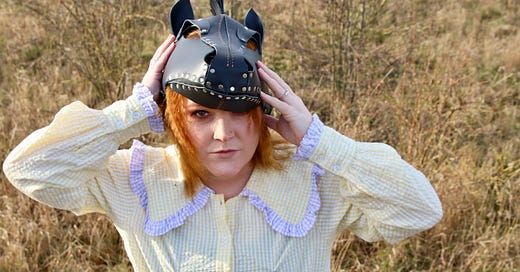



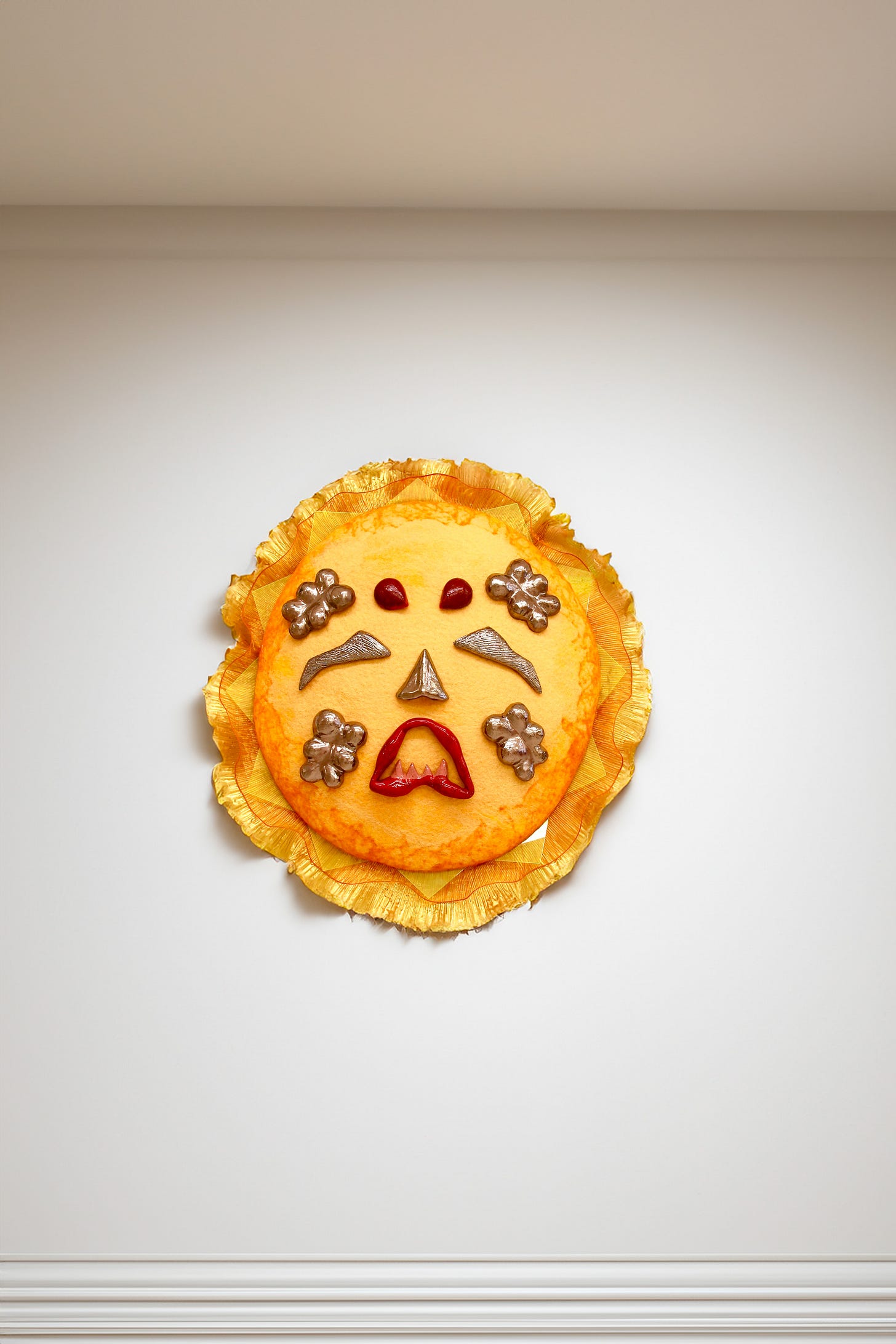
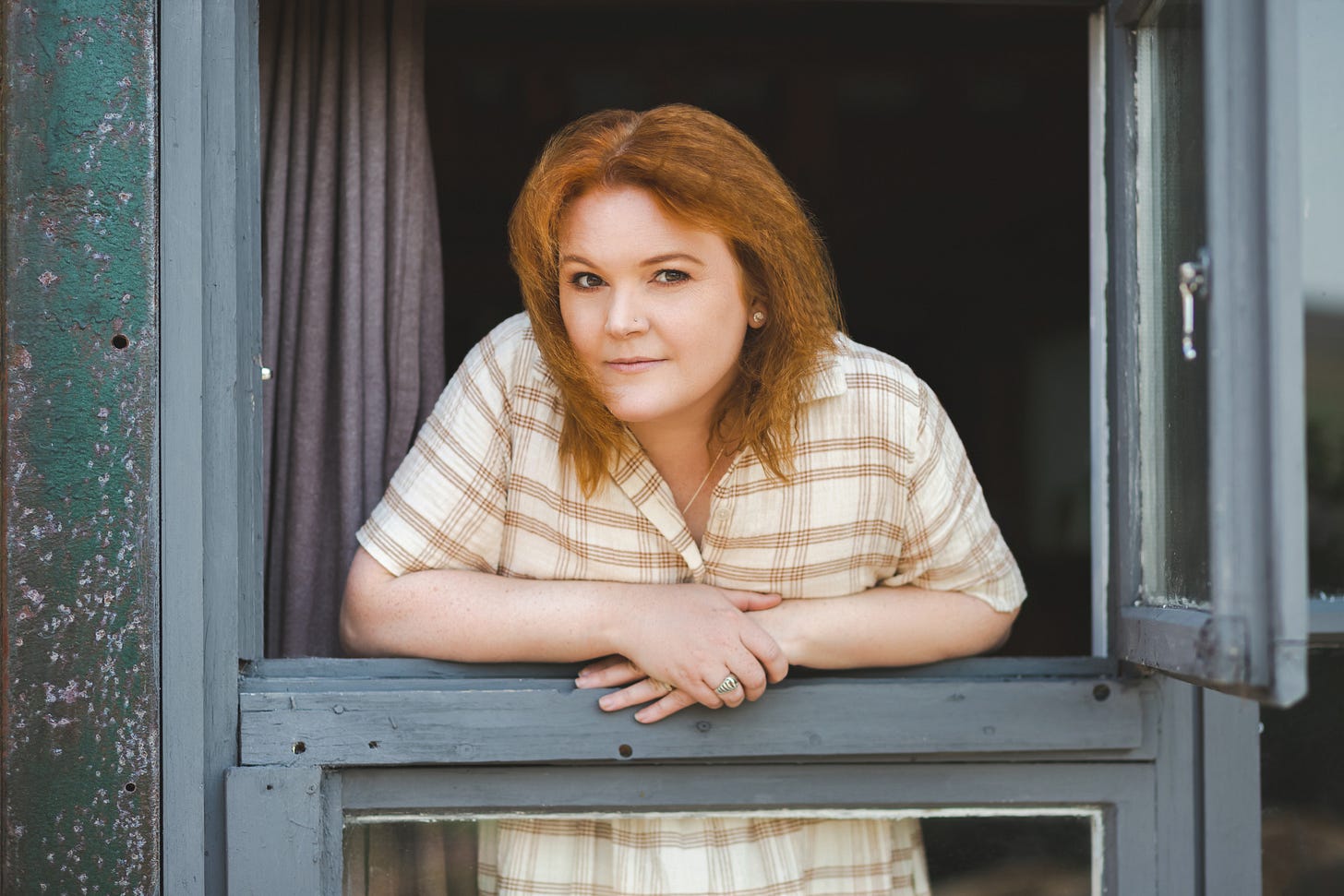
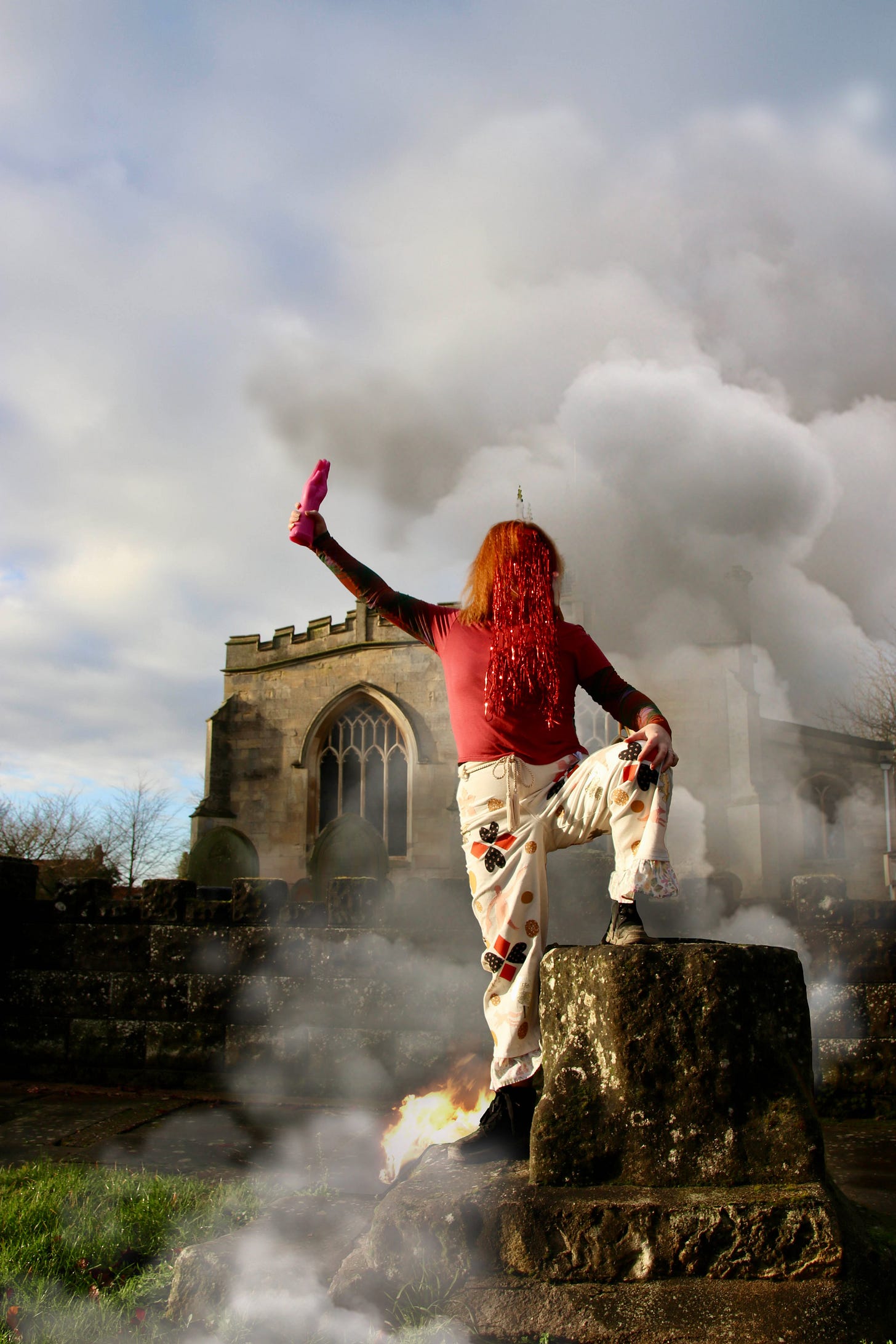
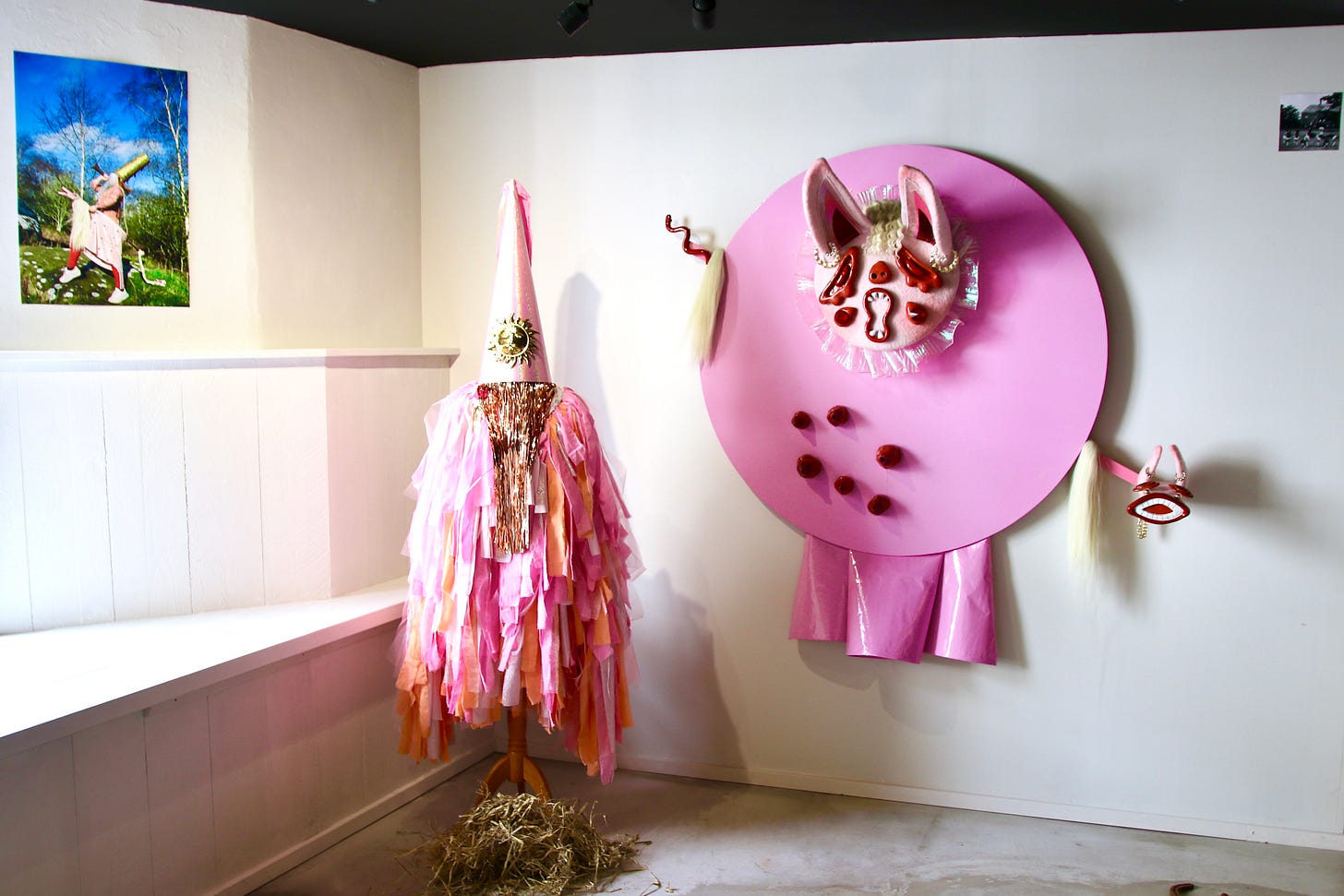

‘Defying the dominant cultural messaging that only professionals should be allowed to do creative stuff, and the rest of us had better stick to consuming’ - Love this comment so much. As a creative person, there’s so much pressure to ‘sell’ everything one does, which puts a damper on the creative process and eliminates play and failure, but it’s often in failing that we learn much and it’s also what connects us to others, trying and experimenting together, we can create something wonderful.
This is enchanting! At the beginning of each art therapy, we acknowledge that harm that we have done as settlers on this land. It has been powerful and impactful for me each time as we have explored so many indigenous artists, poets and creators. I am so interested in exploring Lucy's work further and delving in to my own expansion of art in a way that is inclusive and enchanting.